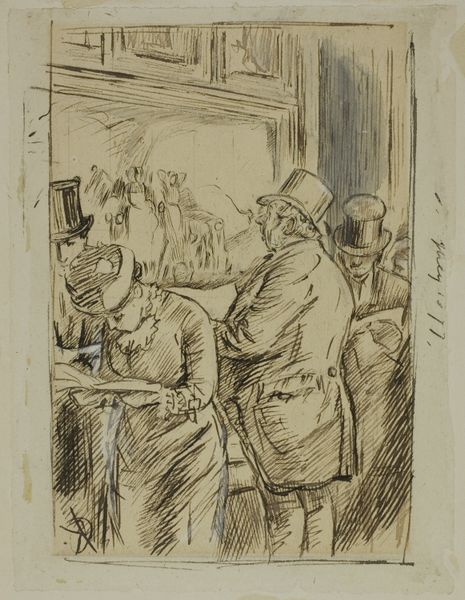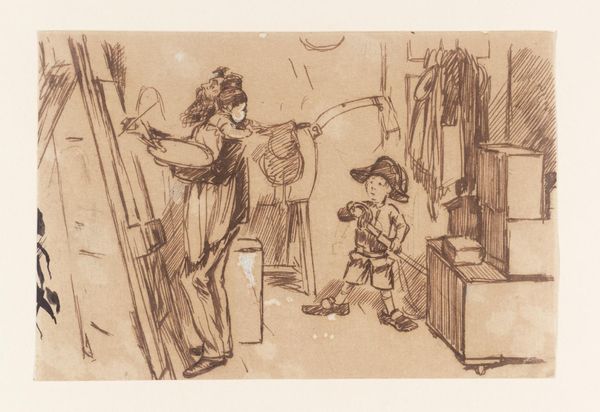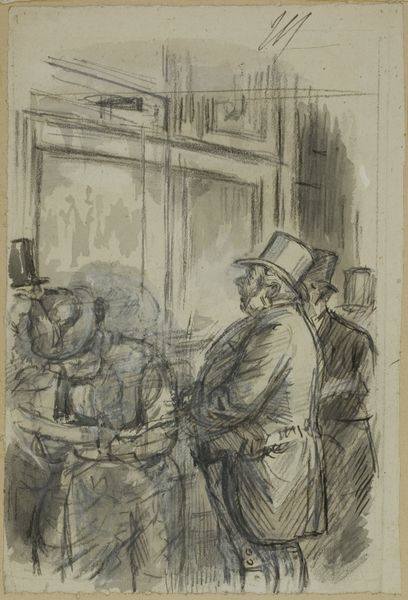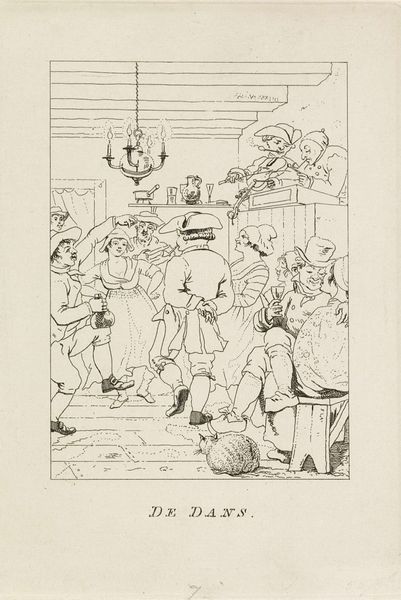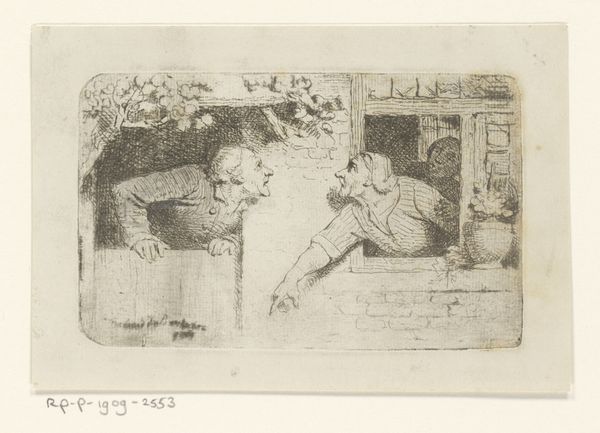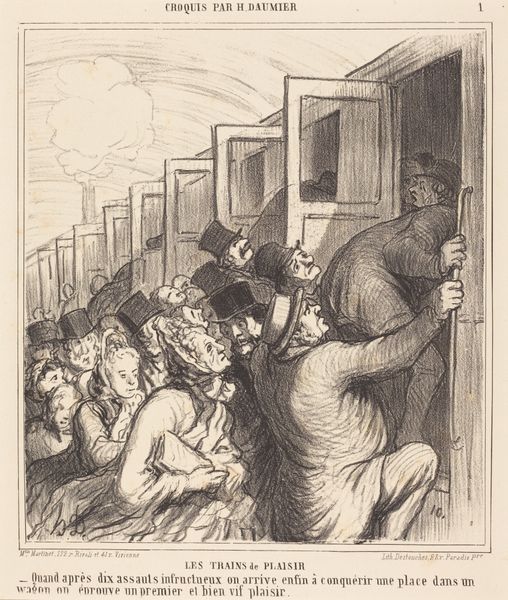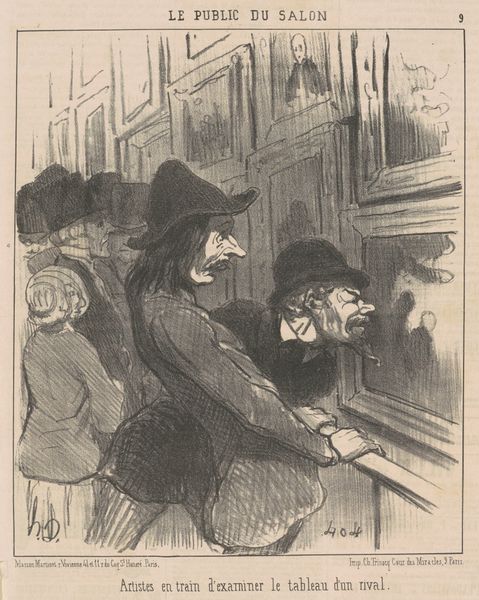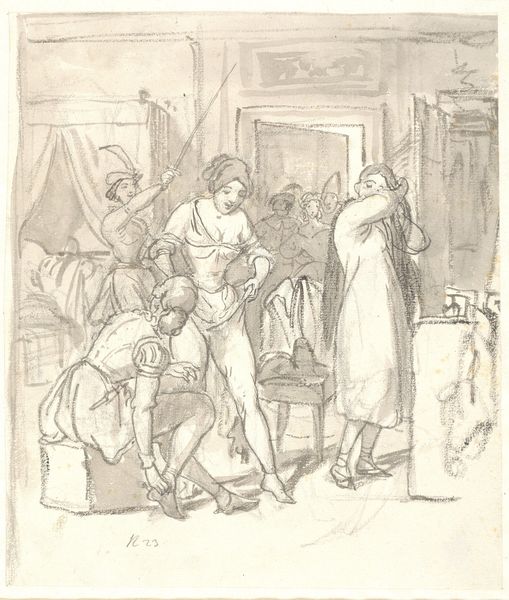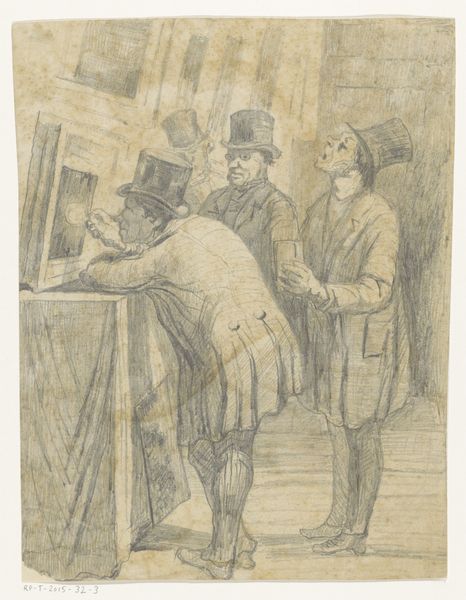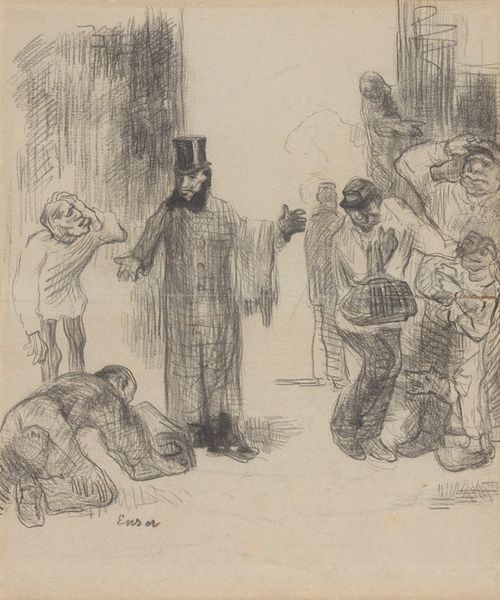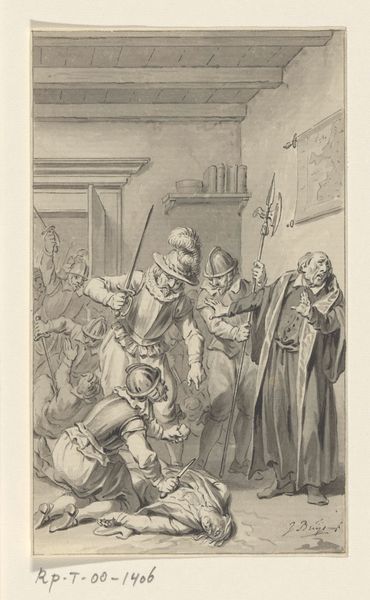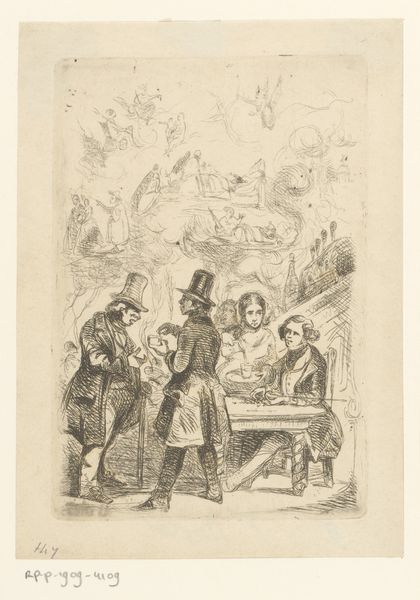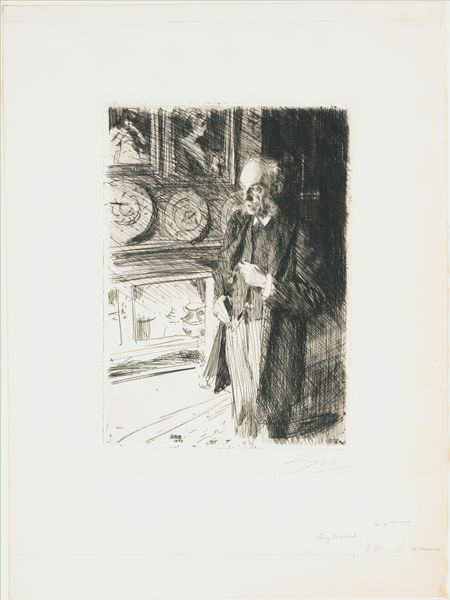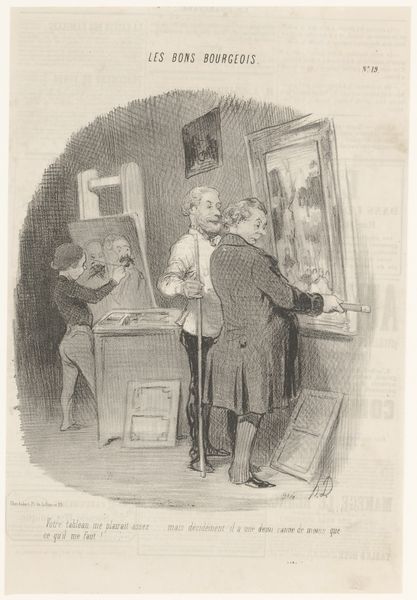
Illustration for Jérôme Paturot à la recherche d'une position sociale (Jérôme Patruot in Search of a Social Position), by Louis Reybaud, Paris, 1846 1841 - 1851
0:00
0:00
drawing, print
#
portrait
#
drawing
# print
#
pencil drawing
#
portrait drawing
#
genre-painting
#
history-painting
#
academic-art
Dimensions: sheet: 7 1/2 x 4 13/16 in. (19.1 x 12.2 cm)
Copyright: Public Domain
J. J. Grandville created this illustration in Paris in 1846 for Louis Reybaud's novel, using pen and ink with graphite. Observe the portraits of a man in military attire and a woman in a refined dress. They represent the conventional symbols of social aspiration during the 19th century. Consider how portraiture, throughout history, has served to elevate its subjects, often becoming a mirror reflecting societal values. Think of ancient Roman busts or Renaissance portraits, each era imbuing the form with its own cultural significance. These images tap into a primal human desire to leave a lasting mark, to transcend mortality through representation. This desire transcends time. In the context of 19th-century Paris, Grandville's illustration captures a society grappling with new definitions of status and identity. The portraits are not merely images but potent symbols of the yearning for social acceptance. This resonates deeply within our collective psyche, the eternal quest to find our place and be recognized, a cycle endlessly repeating in the theater of human existence.
Comments
No comments
Be the first to comment and join the conversation on the ultimate creative platform.
